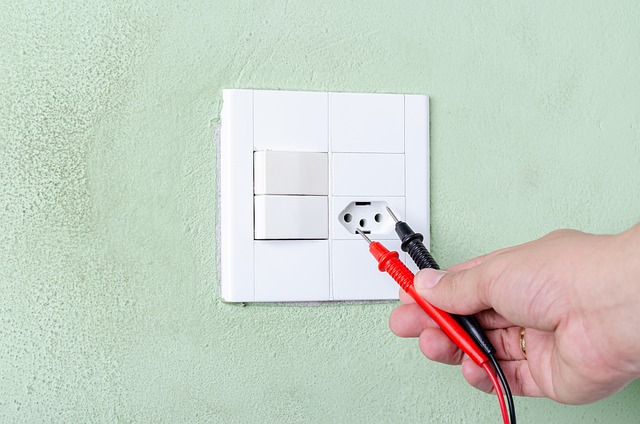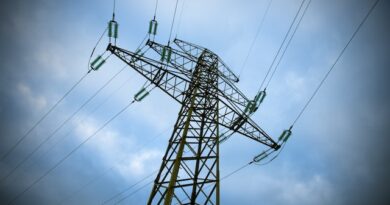Electrical Testing in Pali
Introduction
When it comes to electrical systems, safety and reliability are paramount. Electrical testing plays a crucial role in ensuring that electrical installations and equipment in Pali meet the necessary standards and are free from potential hazards. In this article, we will delve into the world of electrical testing in Pali, exploring its significance, processes, and the benefits it brings. Whether you’re a homeowner, business owner, or electrical professional, understanding electrical testing is essential for maintaining safety and avoiding costly issues. Let’s dive in!
Electrical Testing in Pali: An Overview
Electrical testing involves a series of procedures and assessments conducted on electrical systems and components to assess their performance, functionality, and adherence to safety regulations. By performing these tests, professionals can identify any potential faults, risks, or inefficiencies and take appropriate measures to rectify them.
The Importance of Electrical Testing
Electrical testing serves as a preventive measure to identify problems before they escalate into major issues. Here are some key reasons why electrical testing is crucial:
- Safety Assurance: Electrical testing ensures that installations and equipment meet safety standards, minimizing the risk of electrical accidents, shocks, and fires.
- Compliance: Regular testing ensures compliance with local regulations, codes, and standards, preventing legal and financial penalties.
- Reliability: Testing enhances the reliability and performance of electrical systems, reducing downtime, disruptions, and costly repairs.
- Energy Efficiency: Through testing, energy inefficiencies and wastage can be identified, enabling the implementation of energy-saving measures.
Common Types of Electrical Testing
Electrical testing encompasses various assessments and procedures, each serving a specific purpose. Let’s explore some common types of electrical testing:
1. Visual Inspection
Visual inspection involves a thorough examination of electrical components, looking for signs of damage, wear and tear, loose connections, or improper installations. This initial assessment helps identify any visible issues that might require further testing.
2. Insulation Resistance Test
Insulation resistance testing measures the resistance of electrical insulation materials, such as cables and wires, against current leakage. This test helps detect insulation breakdowns, moisture ingress, or other potential risks to electrical safety.
3. Earth Ground Testing
Earth ground testing evaluates the integrity of the grounding system, which ensures that excess electrical charges are safely discharged into the ground. It identifies faulty grounding that can lead to electric shocks and protects against equipment damage.
4. Circuit Breaker Testing
Circuit breaker testing verifies the proper functioning of circuit breakers, which are crucial for interrupting electrical currents during faults. It ensures that circuit breakers can operate as intended, preventing electrical overloads and short circuits.
5. Load Testing
Load testing evaluates the performance of electrical systems under normal operating conditions and heavy loads. By simulating real-world scenarios, load testing determines the capacity and reliability of electrical installations, identifying potential weaknesses.
Electrical Testing Process in Pali
To ensure thorough and accurate testing, professionals follow a systematic electrical testing process. This process typically involves the following steps:
- Planning: Assess the scope of testing, identify critical components, and establish a testing schedule.
- Preparation: Gather necessary equipment, review safety procedures, and ensure proper isolation of electrical systems.
- Testing: Perform the required tests, following established protocols and utilizing specialized equipment.
- Analysis: Analyze the test results, identify any issues or deviations from standards, and determine the appropriate actions.
- Reporting: Document the test findings, including observations, recommendations, and any necessary repairs or improvements.
- Maintenance: Regularly monitor and maintain the electrical systems to ensure ongoing compliance and safety.
FAQs about Electrical Testing in Pali
- Q: Why is electrical testing necessary for residential properties?
- A: Electrical testing is vital for residential properties to ensure the safety of occupants, identify potential hazards, and maintain compliance with building codes and regulations.
- Q: How often should electrical testing be conducted?
- A: The frequency of electrical testing depends on various factors such as the type of property, its age, usage, and local regulations. It is generally recommended to conduct testing every 3 to 5 years.
- Q: Can electrical testing prevent electrical fires?
- A: Yes, electrical testing plays a crucial role in identifying faulty wiring, overloaded circuits, and other potential fire hazards. By addressing these issues promptly, electrical testing helps prevent fires.
- Q: What are the consequences of non-compliance with electrical testing regulations?
- A: Non-compliance can result in severe consequences, including legal penalties, insurance complications, increased risk of accidents, and potential harm to individuals and property.
- Q: Can I perform electrical testing myself, or should I hire a professional?
- A: It is highly recommended to hire a qualified and experienced professional for electrical testing. They have the necessary expertise, equipment, and knowledge to perform accurate and reliable tests.
- Q: How long does electrical testing usually take?
- A: The duration of electrical testing depends on the complexity of the system being tested. It can range from a few hours for simple residential properties to several days for larger commercial or industrial installations.
Conclusion
Electrical testing is an essential aspect of maintaining safety, reliability, and compliance in Pali. By conducting thorough assessments and tests, professionals can identify potential hazards, ensure adherence to regulations, and enhance the overall performance of electrical systems. Whether you’re a homeowner or a business owner, investing in regular electrical testing can save you from costly repairs, downtime, and potential accidents. Prioritize electrical testing to safeguard yourself, your property, and those around you.




